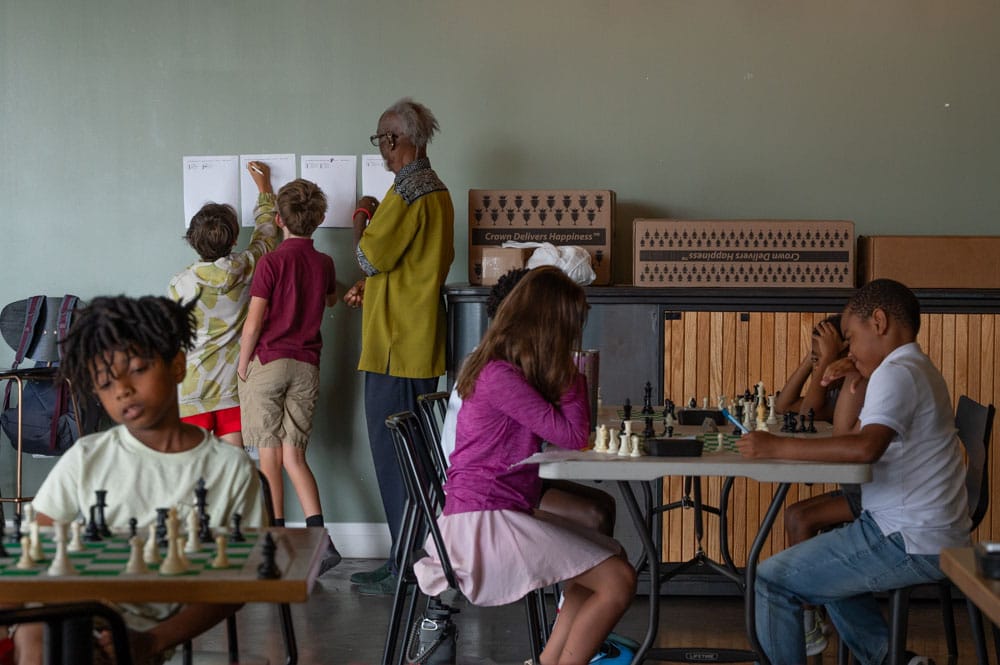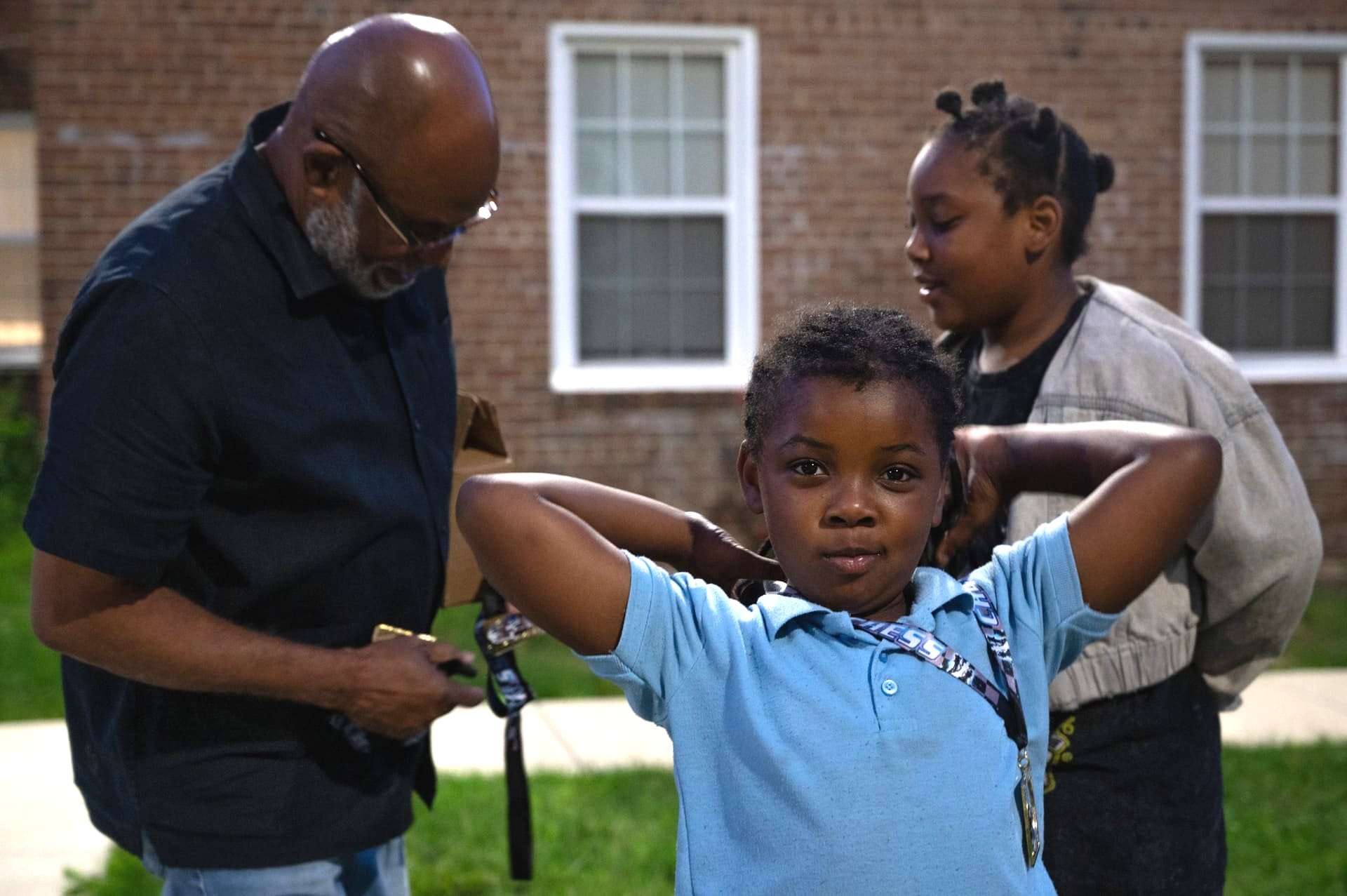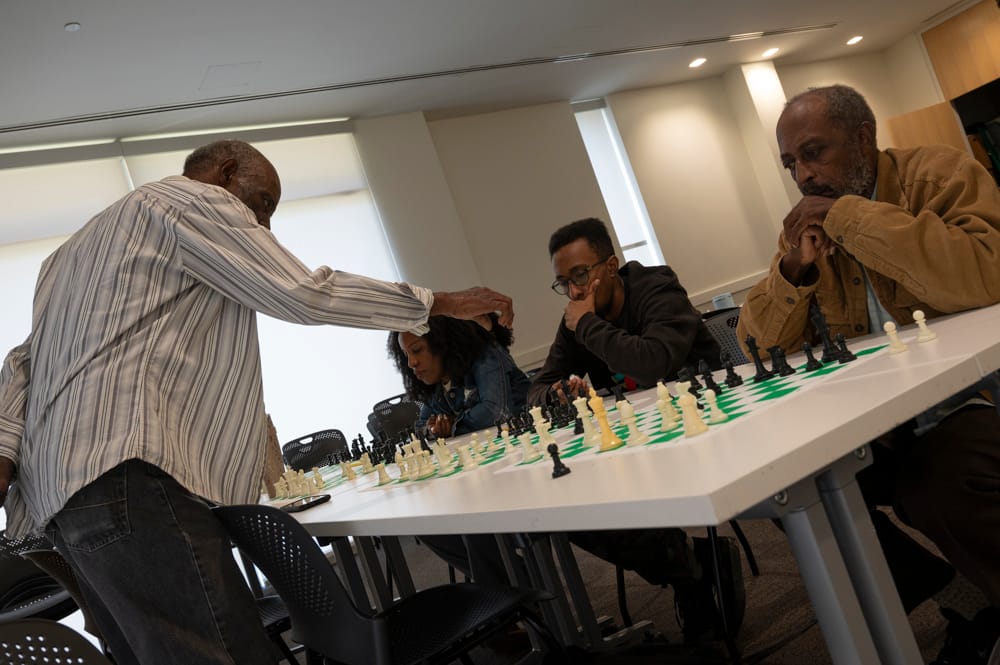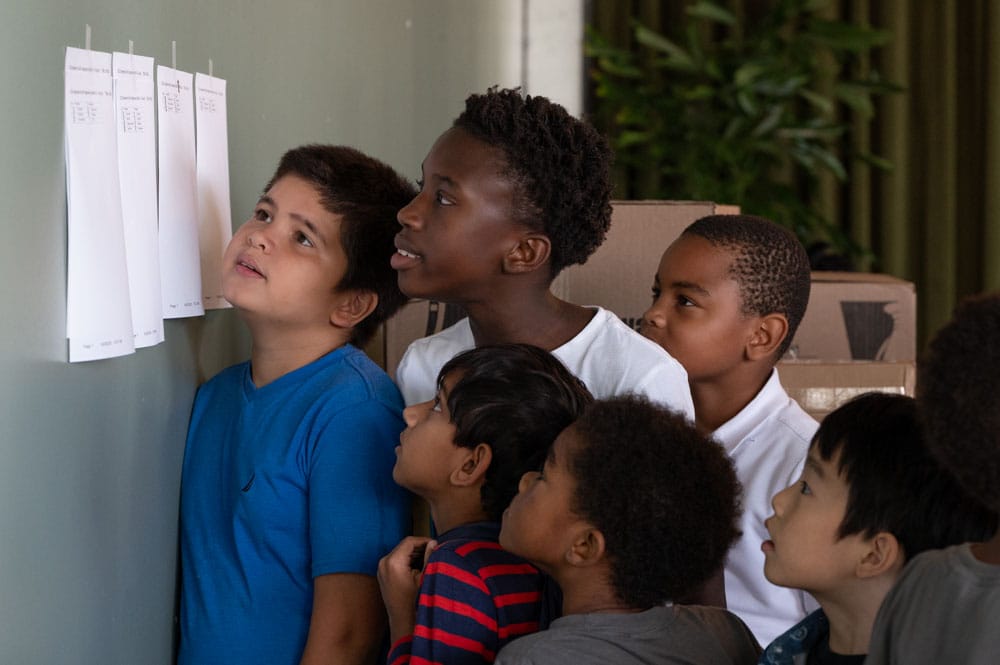What can be done about your expensive Pepco bill?
Financial assistance, energy audits, and avoiding third-party suppliers can help.
Vaughn Bennett is fighting to give young Black students an equal shot at competitive chess.

In his time as director of the DC State Chess Federation, Vaughn Bennett has come to believe that chess is not just a game — it’s political.
Chess has a rich history in D.C., with multiple local chess groups and a host of skilled players. But the game has often been tangled up in the city’s patterns of racial and economic inequality, Bennett says. He believes national chess organizations haven’t extended the support necessary for local groups to provide equitable access to competitive chess. That’s created tensions between local organizations that persist to this day.
Bennett's DC State Chess Federation — known colloquially as DC State Chess — has become a critical space for people across D.C. to access chess classes and tournaments. It’s a particularly important resource for kids who otherwise wouldn’t be able to afford the hefty costs associated with competitive chess, he says. When they can access good teachers, Bennett says, young people thrive in competitive chess environments, and their confidence and success can translate into other parts of their lives.
Chess is “a weapon, a tool, an antidote that can be used to uplift the world,” Bennett says. “And so we have a duty to use it.”

Bennett was introduced to the transformative power of chess early in his life. He started playing as a child growing up in Pittsburgh, he said in an interview with Chess in the Schools. He moved to D.C. in 1985 thinking "I was one of the best chess players in the country," he told the publication — when he started losing to the skilled players that gather in Dupont Circle, he was surprised, but undeterred.
These trips to Dupont Circle were his reprieve from working long hours as a firefighter and emergency medical technician, where he responded to a large number of violent calls. After leaving the department, Bennett became a psychiatric technician at a group home, where he saw how successful chess could be as an intervention tool. These experiences kickstarted his desire to start teaching chess. His emerging belief in chess as “a kind of life” has informed his career for the last four decades.
And D.C. was a pretty good place to be while he was having these revelations. A 1998 article in Chess Life described D.C. in the mid-20th century as the “cradle of Black chess in America.” It was once home to many of the most esteemed Black players in the world, including International Chess Master Emory Tate — who was a critical figure at the time Bennett first immersed himself in the local scene in mid-to-late '80s.
“[Tate] would drive up to our 24-hour chess club where we had two tournaments a week at 910 P Street, Northeast,” Bennett says. At the time, Bennett could hear gunfire out his window every night, he says. “The chess house in Washington for me was like an oasis, because out of all that, I would see these 40, 50 men coming together … where they were just playing chess.”

In the late 1990s, Bennett committed himself to teaching the game in predominantly Black neighborhoods “where nobody wanted to go.” First holding lessons on Morris Road SE in Ward 8, he soon began to teach in schools and libraries in all corners of the city.
Kareem El was just seven years old when he first attended one of Bennett’s classes at the Northeast Neighborhood Library. El, now 31, says that amidst a “legacy of gatekeeping” where chess as an “institution [was] built to serve a certain population of people,” it was important that Bennett made himself present for “the folks across the river, the folks from the wards 6, 7, [and] 8.”
“I'll never forget, we went somewhere in Virginia … it was basically like the ‘ghetto’ kids rolled up to the chess tournament,” he says.
El recalls that despite other participants’ assumptions that his team didn’t know how to play the game, they took home most of the awards. “There's this picture and it's me in a durag about to get a medal, and the dude who's about to hand me the medal, he just has the most stank face imaginable,” he says.
Bennett operated under a variety of different organizations for decades, building up a community of teachers and students from across the city. When he founded the DC State Chess Federation in 2021, it quickly became one of the most active chess organizations in the District.
In 2024, the DC State Chess Federation hosted 18 tournaments, significantly more than the other two most prominent chess organizations in the District, the DC Chess Association — which was named the new state chapter in the August of that year — and the DC Chess League.
But despite the success of his organization, Bennett’s time as a chess educator and advocate hasn’t been without controversy. He’s long clashed with other chess teachers and leaders in the city, arguing their organizations haven’t made the game accessible enough to underserved communities. He was arrested in 2002 for allegedly disrupting a chess tournament in D.C., drawing a write-up in the Washington City Paper. The confrontation stemmed from a long-running feud between Vaughn and David Mehler, then the host of several important local chess competitions. Vaughn accused Mehler of obstructing Black students’ opportunities to compete at national events. Mehler contended students were sent to national competitions based entirely on their chess rating and their performance at key competitions.

Bennett’s organization has also clashed with other local chess groups over recognition by the U.S. Chess Federation as D.C.’s official state chapter. That title promises more resources and advertising opportunities and helps to facilitate the process of certifying tournaments for national ranking.
A USCF report determined that the District of Columbia Chess League, in its 30 years as the District’s former State Chapter, failed to hold enough tournaments or events to sustain organized chess in the city and retain the title. The USCF moved the title to the DC Chess Association, but Bennett claims this organization also fails to make the game accessible enough, charging up to $45 to participate in tournaments. (The DC Chess Association maintains that it operates tournaments at a loss, providing funding “beyond entry fees to pay for tournament directors, venues, trophies and sometimes cash prizes.”)
On top of all that, the USCF recently revoked Bennett’s organization’s license to hold affiliated tournaments after a dustup regarding the organization’s name.
After losing his organization’s affiliate status, Bennett decided to abandon the USCF altogether. “All these things that I've been doing, running tournaments under the U.S. Chess Federation, I could have been doing for myself since the eighties,” he said.
Bennett is now focused on supporting the next generation of players and teachers, he says. That includes students like Nathan Ehrenberg, a junior at School Without Walls High School, who teaches a chess class for children every Wednesday while Bennett watches on.
Like Kareem El, Ehrenberg first met Bennett in a library chess class; he was in the second grade. After “following him around the city” and attending as many classes as he could, Ehrenberg developed a love for sharing what he learned with others — particularly young chess players. When Bennett couldn’t attend a lesson, Ehrenberg would fill in for him. “I had a chess book in my backpack, so I would teach out of that as a fourth grader,” he says. Eventually, he was teaching chess classes 10 hours a week.
Now, during his Wednesday classes, some parents bring children who are still learning to read and write. But Bennett and Ehrenberg don’t let them off the hook from writing down their moves as ranked chess players are expected to do.

Ehrenberg aspires to continue teaching after graduating high school and into his adult life. He takes inspiration from his own teacher, remembering how Vaughan Bennett made him feel about the game of chess when he was barely older than the kids he teaches now.
“Something I've always admired about [Bennett] is his ability to connect with every single student in the room,” Ehrenberg says.
And Bennett himself shows no signs of slowing down or abandoning his mission. Each Thursday evening, the chess teacher brings a folding table and three vinyl chess boards to the center of an apartment complex in LeDroit Park. Residents young and old stop by to play and familiarize themselves with the board, its notation, and its pieces. As the sun sinks and it's time to leave, Bennett asks each new face, "Do you have a chess set at home?"
All who answer "no" are sent on their way with a chess set and a medal.
Correction: This story has been updated to reflect the correct location of Bennett's arrest.
With your help, we pursue stories that hold leaders to account, demystify opaque city and civic processes, and celebrate the idiosyncrasies that make us proud to call D.C. home. Put simply, our mission is to make it easier — and more fun — to live in the District. Our members help keep local news free and independent for all: